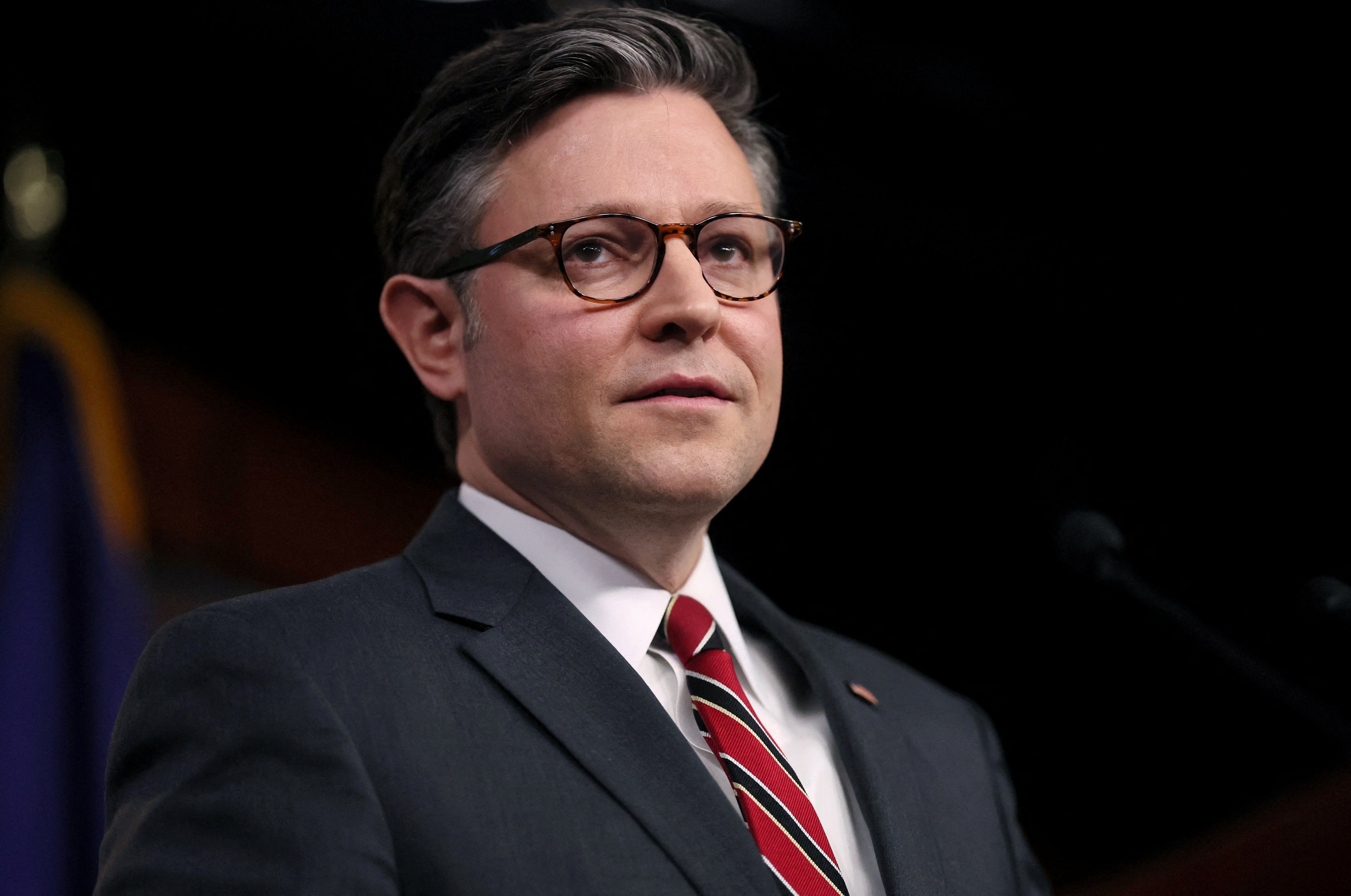
US House Republicans delay stopgap funding bill, shutdown less than three weeks out
PHOTO CAPTION: U.S. House of Representatives Speaker Mike Johnson (R-LA) holds a press conference at Capitol Hill in Washington, U.S., February 14, 2024. REUTERS/Leah Millis
By Bo Erickson
WASHINGTON (Reuters) - U.S. House of Representatives Speaker Mike Johnson canceled a vote scheduled for Wednesday on his stopgap funding bill, saying more work was needed to build support for a measure, less than three weeks before a government shutdown deadline.
"No vote today, because we're in the consensus-building business here in Congress, with small majorities, and that's what you do," Johnson told reporters at the Capitol.
Johnson added that Republicans will be working through the weekend to find a bill that would gain enough votes for passage, now that his measure, opposed by President Joe Biden and congressional Democrats, has faltered.
While Johnson spoke of "consensus building," he was referring to reaching a Republican consensus on a bill that Democrats oppose.
That, however, has proven difficult at times as several hard-right members have wielded the party’s narrow 220-211 majority against the priorities of House Republican leaders.
In February, House impeachment of the Homeland Security secretary first failed when several Republicans joined Democrats against the effort. In July, Republicans also sank a funding bill written by their party.
This was now the case for the speaker’s initial funding bill for fiscal 2025, which begins on Oct. 1, as several Republicans came out publicly against Johnson’s plan on Monday and Tuesday.
The proposal includes a controversial provision requiring people to provide proof of citizenship to register to vote, a measure meant to force Democrats to take stances on the politically charged issue of noncitizen voting, which is already illegal in federal elections.
Most Republicans support this voting requirement and the issue is cheered on by Republican presidential candidate Donald Trump, who continues to falsely claim his 2020 loss was the result of fraud.
The holdup from hard-right Republicans is not so much about the voting provision, as these members are generally opposed to stopgap spending measures.
Johnson on Wednesday said Republican leadership is going to keep working on winning more support for this same funding proposal instead of tweaking the legislation.
House Democratic Leader Hakeem Jeffries responded to Johnson by advocating for “a bipartisan path forward.” But he also warned his caucus “will never yield to MAGA extremism.”
The federal government's fiscal year ends on Sept. 30, when funding for many agencies expires. Without some sort of extension, federal programs not deemed essential would have to suspend many of their operations, forcing thousands of government workers to go on leave.
While Johnson has suffered a setback in his drive to promptly pass a stopgap spending bill, there still is plenty of time for Congress to devise legislation that can pass in both chambers and win Biden's signature.
Nevertheless, some senior Democrats say the delay was proof that Republicans cannot succeed with a go-it-alone approach.
“It is past time ... to begin good-faith negotiations on a continuing resolution that will keep government programs and services Americans depend on,” Representative Rosa DeLauro, the top Democrat on the House Appropriations committee, said in a statement.
Congress faces an even more critical self-imposed deadline on Jan. 1, before which they must act to raise or extend the nation's debt ceiling or risk defaulting on more than $35 trillion in federal government debt.
(Reporting by Bo Erickson; Editing by Scott Malone, Jonathan Oatis and Bill Berkrot)










